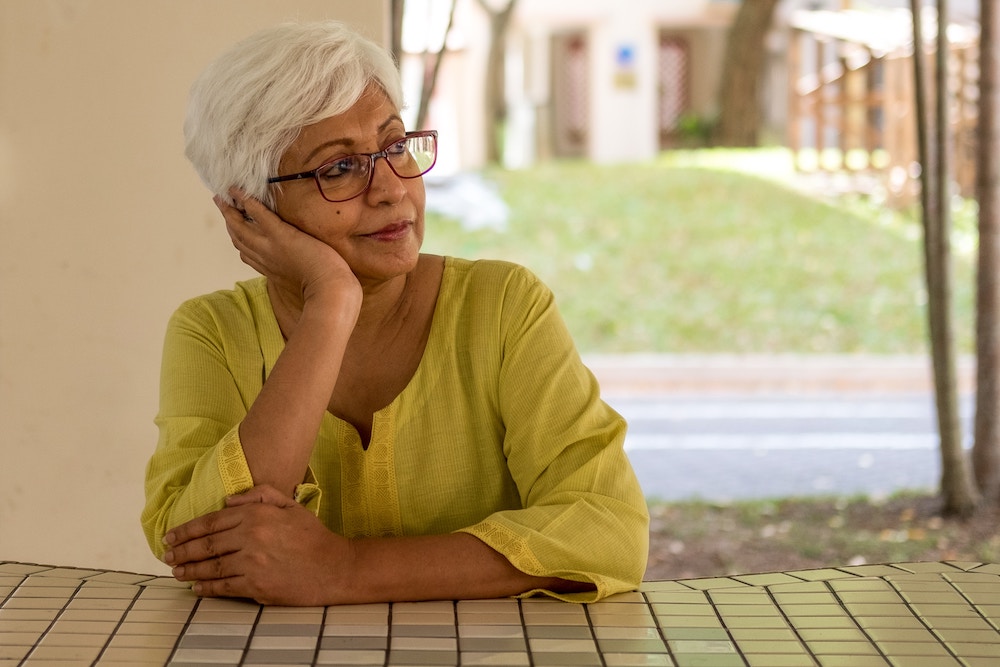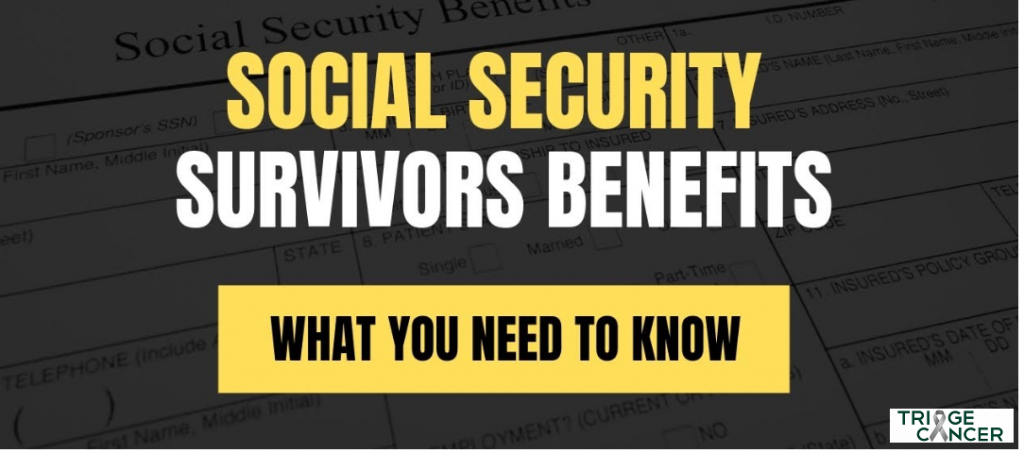
03 Dec Social Security Survivors Benefits You Need to Know

Written by: Jay A. Neary
When Social Security comes to mind, we often think of Social Security retirement benefits, and maybe even Social Security disability benefits. But most people are unaware that Social Security also offers survivors benefits to family members affected by the death of a wage earner in the family.
A spouse, children, or even dependent parents may be eligible for survivors benefits. While most people feel uncomfortable thinking about estate planning, being aware of resources can be empowering, and may even bring comfort and peace-of-mind understanding how family members may be taken care of.
How one qualifies for Social Security benefits.?
Before exploring Social Security survivors benefits, it’s important to first understand how one qualifies for Social Security benefits.
Social Security determines eligibility based on “credits.” To earn “credits,” wage earners must participate in “covered work,” meaning they must pay into the Social Security system through employer payroll or self-employment taxes (the majority of U.S. wage earners do pay into Social Security). Each person can earn up to 4 Social Security credits per year. As of 2020, once you earn $5,640, you have earned the maximum 4 credits for the year.
The number of credits needed to pay survivors benefits depends on age, and when one dies. The younger a person is at death, the fewer credits required for benefits. In fact, benefits may be paid to your spouse or children even if you have only 6 Social Security credits, or 1.5 years of covered work in the 3 years prior to death.
The amount of Social Security survivors benefits depends on a person’s earnings, as well as the age of the surviving spouse, dependent children, or dependent parent(s). Below is a brief summary of eligible surviving beneficiaries:

- Widow or Widower: A widow or widower beneficiary may receive full benefits at full retirement age, or reduced benefits as early as age 60.
- If the widow or widower is disabled, the beneficiary may receive benefits as early as age 50 (if the disability started before or within 7 years of the worker’s death).
- If the widow or widower is caring for a child under the age of 16, or if the child of the deceased worker is disabled, the beneficiary may receive benefits at any age (as long as they have not remarried).
- Minor or Disabled Child: An unmarried child of the deceased worker who is under age 18 (up to 19 if attending elementary or secondary school full-time), may be eligible to receive their own survivors benefits.
- A child that is disabled prior to age 22, and remains disabled, may be eligible for benefits.
- Grandchildren, stepchildren, or even adopted children may also be eligible for survivors benefits under certain circumstances.
- Surviving Divorced Spouse: If previously married to the deceased worker for 10 years or more, the surviving divorced spouse may be eligible for survivors benefits. A remarriage may eliminate eligibility, unless the survivor is over the age of 60, or 50 if disabled.
- If the surviving divorced spouse is caring for a child under the age of 16, or if the child of the deceased worker is disabled, the beneficiary may receive benefits at any age, and would not have to meet the length-of-marriage rule (as long as the child is the former spouse’s natural or adopted child).
- Parents: A dependent parent of a deceased worker that is at least age 62 may be eligible for survivors benefits. To be eligible, the parent must have been receiving at least half of their support from their deceased child.
While people may only think of a surviving spouse, there may be other family members that can be eligible for benefits. But there is a family maximum amount of Social Security that can be received. Generally, this amount is equal to 150 – 180 percent of the base benefit rate. If total benefits for the family exceed these amounts, then the benefits will be reduced proportionately.
It is highly recommended that survivors reach out to Social Security to walk-thru their personal situation. Often, survivors benefits for children or parents are missed, a potential lifeline for families adjusting to the loss of a wage earner.
To learn more about Social Security survivors benefits, visit: https://www.ssa.gov/benefits/survivors, call 800-772-1213 (TTY 800-325-0778), or visit your local Social Security office.
Jay A. Neary, CFP®, is a Financial Consultant with SVA Wealth Management. Jay is also a financial planning volunteer with Family Reach, a national organization dedicated to reducing Cancer-Related Financial Toxicity (CRFT).
Other Related Posts:
- Q&A with Triage Cancer: Working and SSDI
- Social Security: Benefits, Legislation, & What You Need To Know
- 5 Facts You Might Not Know About Social Security
- Death with dignity laws
- Dangers of Fixed Indemnity Health Insurance Plans – Triage Cancer
FAQs About Social Security Survivors Benefits
We are pleased to share some very useful information from the Social Security Administration about the right of survivors to collect a loved ones' Social Security benefits.
Who can get Social Security survivors benefits and how do I apply?
Response: When you die, members of your family could be eligible for benefits based on your earnings. You and your children also may be able to get benefits if your deceased spouse or former spouse worked long enough under Social Security.
Who can get survivors benefits?
Response: Widows and Widowers
A widow or widower can receive benefits
- at age 60 or older.
- at age 50 or older if disabled.
- at any age if she or he takes care of a child of the deceased who is younger than age 16 or disabled.
Divorced Widows and Widowers
A divorced widow or widower can receive benefits
- at age 60 or older if the marriage to the deceased lasted at least 10 years.
- at age 50 or older if disabled and the marriage to the deceased lasted at least 10 years.
- at any age if she or he takes care of a child of the deceased who is younger than age 16 or disabled.
Unmarried children
Unmarried children can receive benefits if they are:
- younger than age 18 (or up to age 19 if they are attending elementary or secondary school full time);
- any age and were disabled before age 22 and remain disabled.
Under certain circumstances, benefits also can be paid to stepchildren, grandchildren, stepgrandchildren or adopted children.
Dependent parents
Parents age 62 or older who received at least one-half support from the deceased can receive benefits.
One-time lump sum death payment
A one-time payment of $255 can be made only to a spouse or child if they meet certain requirements. Survivors must apply for this payment within two years of the date of death.
How do I apply doe Survivors Benefits?
Response: You cannot apply for survivors benefits online. To report a death or apply for survivors benefits, please
- call our toll-free number, 1-800-772-1213 (TTY 1-800-325-0778).
- You also can call or visit your local Social Security office.
Where can I find more information about Survivors Benefits?
Response: You can find more information about Survivors benefits by accessing the following links: Survivors Planner: How You Apply For Survivors Benefits
Survivors Planner: If You Are The Worker’s Widow Or Widower
Survivors Benefits
Social Security Survivors Benefits: Protection You And Your Family Can Count On
What Should I do when someone dies?
Response: Notify Social Security as soon as possible when someone getting benefits dies. In most cases, the funeral director will report the person’s death to Social Security. Give the funeral director the deceased’s Social Security number so he or she can report the death.
See How Social Security Can Help You When A Family Member Dies for more information.
How much do survivors get in benefits?
Response: We base survivors benefits on the amount the deceased worker earned during his or her lifetime.
See Survivors Planner: How Much Would Your Benefit Be? for more information.
Who can get a lump-sum death benefit?
Response: We may pay a lump-sum death benefit of $255 to:
- A spouse who was living with the deceased person at the time of death; or
- A spouse or a child who, in the month of death, is eligible for a Social Security benefit based on the deceased person’s record.
More Information
- Survivors Planner: A Special Lump-Sum Death Payment
- Information You Need To Apply For Lump Sum Death Benefit – Form SSA-8
Can Social Security payments go to the estates of deceased beneficiaries?
Response: A deceased beneficiary may have been due a Social Security payment at the time of death. We may pay amounts due a deceased beneficiary to a family member or legal representative of the estate.
See Claim For Amounts Due In The Case Of Deceased Beneficiary – Form SSA-1724 for more information.


